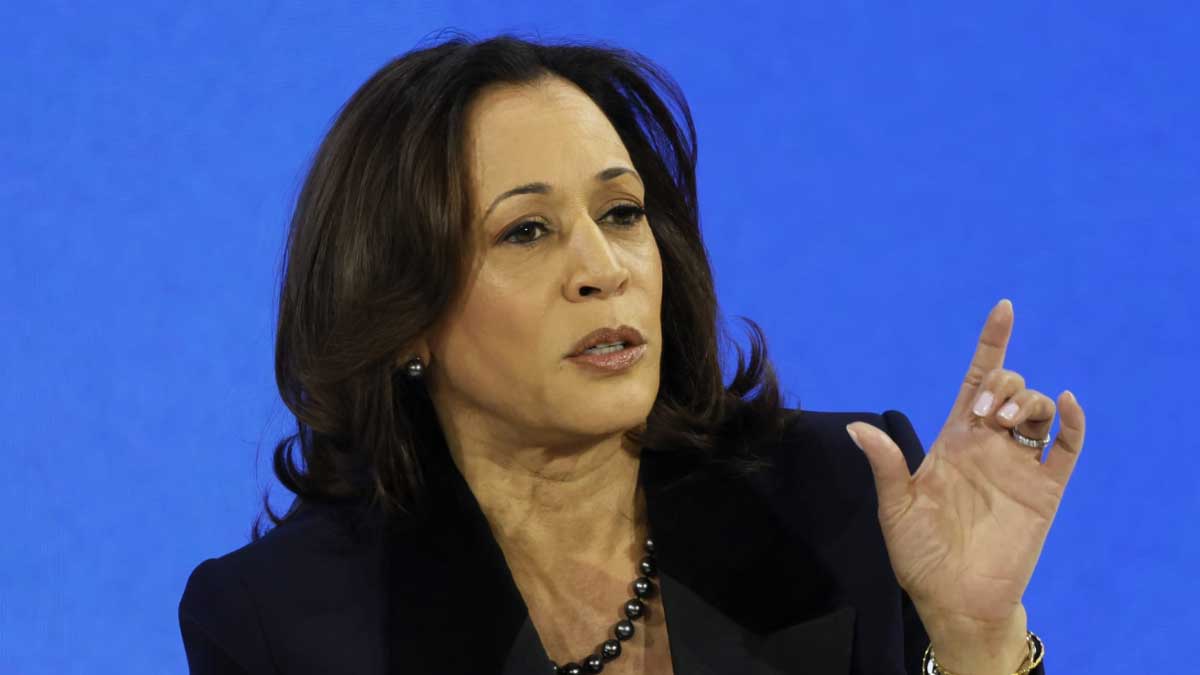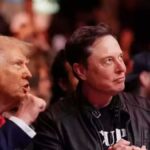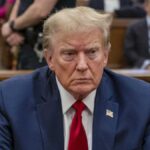- Home
- Billionaires
- Investing Newsletters
- 193CC 1000
- Article Layout 2
- Article Layout 3
- Article Layout 4
- Article Layout 5
- Article Layout 6
- Article Layout 7
- Article Layout 8
- Article Layout 9
- Article Layout 10
- Article Layout 11
- Article Layout 12
- Article Layout 13
- Article Layout 14
- Article Sidebar
- Post Format
- pages
- Archive Layouts
- Post Gallery
- Post Video Background
- Post Review
- Sponsored Post
- Leadership
- Business
- Money
- Small Business
- Innovation
- Shop
Recent Posts
Majority of Millionaires Prefer Harris Over Trump, UBS Poll Shows

According to a recent survey conducted by UBS, a majority of affluent Americans are leaning towards Vice President Kamala Harris over former President Donald Trump in the upcoming November election. As both candidates engage in a heated debate over economic policies amid a potentially pivotal moment for the U.S. economy, the survey highlights differing preferences among high net worth individuals.
The poll, released on Thursday, reveals that approximately 57% of millionaires intend to support Harris, compared to 43% who favor Trump. This survey, which involved 971 U.S. investors possessing at least $1 million in investable assets, was conducted last month and illustrates a significant preference for Harris among this demographic.
However, despite the preference for Harris in the voting booth, the survey indicates that a narrow majority of these wealthy investors still view Trump as better equipped to handle the economy. In fact, 51% of respondents believe that Trump is more capable of addressing economic issues, with his tax policy cited as the primary appeal. Among Trump supporters, a striking 64% pointed to his tax approach as a crucial reason for their preference, suggesting that economic concerns weigh heavily in their decision-making process.
As the election approaches, a considerable number of respondents are contemplating changes to their investment portfolios. The survey found that 77% of millionaires are considering adjustments, a noticeable increase from 63% in a similar poll conducted in August 2020. This shift may reflect growing concerns regarding the divergent economic policies of Harris and Trump.
In contrast to the sentiments expressed by millionaire investors, a separate UBS poll focusing on business owners reveals a more favorable view of Trump. This poll, also released on Thursday, indicates that 53% of business owners prefer Trump over Harris, who received 47% support. Among the surveyed business owners—500 individuals managing annual revenues exceeding $1 million—about two-thirds expressed significant worry about the possibility of increased business tax rates, marking it as their top concern.
When it comes to economic confidence, business owners favored Trump over Harris by a margin of 55% to 45%, and they also preferred Trump on tax issues by 54% to 46%. This divide underscores the distinct perspectives held by millionaires and business owners regarding the candidates’ economic policies and their implications for the business landscape.
The millionaire investors have expressed specific preferences for sectors they find attractive, depending on the election’s outcome. If Harris emerges victorious, they view healthcare, technology, and sustainability-focused stocks as the most promising sectors. Conversely, if Trump wins, they consider defense, energy, and industrial sectors to be the most appealing. Analysts suggest that technology stocks may thrive under a Harris administration, particularly due to Trump’s more aggressive trade stance with China, which could adversely affect American tech companies that rely heavily on Chinese business. On the other hand, Trump’s commitment to reducing regulatory barriers is perceived as advantageous for industries such as energy, which are more impacted by government regulations.
As both candidates campaign, Harris is focusing on policies aimed at the middle class while taking a strong stance against the wealthiest citizens. She advocates for several initiatives, including a controversial tax on unrealized capital gains targeted at individuals with a net worth of at least $100 million. This proposal would require wealthy individuals to treat gains from stocks they already hold as taxable income, significantly altering the tax landscape for high net worth individuals.
Both candidates have made efforts to appeal to business owners. Harris has proposed a tenfold increase in the startup tax break, aiming to attract entrepreneurs and promote business growth. Meanwhile, Trump has proposed substantial cuts to the corporate tax rate for companies that produce goods domestically, positioning himself as a champion for American industry.
While polling indicates a slight preference among the general U.S. population for Trump as the better steward of the economy, the current economic landscape is complex. Although stock indexes are hitting new highs and economic growth remains robust, many Americans express dissatisfaction with the state of the economy. A significant driver of this discontent is inflation, which has surged to levels not seen in four decades during the Biden administration.
As the election approaches, the diverging views of millionaires and business owners may shape the strategies of both campaigns. With the economy at a potential inflection point, candidates must navigate the complexities of their respective economic platforms and the concerns of affluent voters. The outcomes of these polls may also influence how they address key issues in the final weeks leading up to the election, particularly as voters weigh the implications of each candidate’s policies on their financial futures.
In summary, the UBS poll underscores a clear divide in preferences between millionaire investors and business owners regarding Harris and Trump. While Harris garners more support from wealthy individuals, many still believe Trump is better equipped to tackle economic challenges. The evolving landscape of voter sentiment, economic concerns, and candidate proposals will undoubtedly play a crucial role in the upcoming election, making it a pivotal moment for the U.S. economy and its future direction.
Recent Posts
Categories
- 193cc Digital Assets2
- 5G1
- Aerospace & Defense44
- AI32
- Arts3
- Banking & Insurance11
- Big Data3
- Billionaires230
- Boats & Planes1
- Business309
- Careers13
- Cars & Bikes66
- CEO Network1
- CFO Network17
- CHRO Network1
- CIO Network1
- Cloud10
- CMO Network18
- Commercial Real Estate7
- Consultant1
- Consumer Tech157
- CxO1
- Cybersecurity54
- Dining1
- Diversity, Equity & Inclusion4
- Education7
- Energy8
- Enterprise Tech29
- Events11
- Fintech1
- Food & Drink2
- Franchises1
- Freelance1
- Future Of Work2
- Games135
- GIG1
- Healthcare75
- Hollywood & Entertainment158
- Houses1
- Innovation37
- Investing2
- Investing Newsletters4
- Leadership65
- Lifestyle10
- Manufacturing1
- Markets20
- Media184
- Mobile phone1
- Money13
- Personal Finance2
- Policy544
- Real Estate1
- Research6
- Retail1
- Retirement1
- Small Business1
- SportsMoney24
- Style & Beauty1
- Success Income1
- Taxes2
- Travel10
- Uncategorized6
- Vices1
- Watches & Jewelry2
- world's billionaires200
Related Articles
Musk and Ramaswamy Push $2 Trillion Federal Cuts via DOGE
Billionaires Elon Musk and Vivek Ramaswamy, co-leads of the Trump administration’s proposed...
By 193cc Agency CouncilNovember 23, 2024Alphabet Shares Fall 5% as DOJ Seeks Chrome Sale
Shares of Alphabet, the parent company of Google, dropped more than 5%...
By 193cc Agency CouncilNovember 22, 2024Carr’s FCC Nomination and Musk’s Potential Gains
President-elect Donald Trump has nominated Brendan Carr to lead the Federal Communications...
By 193cc Agency CouncilNovember 19, 2024Musk Joins Trump’s Call with Ukraine’s Zelensky
Billionaire Elon Musk played an unexpected role in a call between President-elect...
By 193cc Agency CouncilNovember 9, 2024















Leave a comment